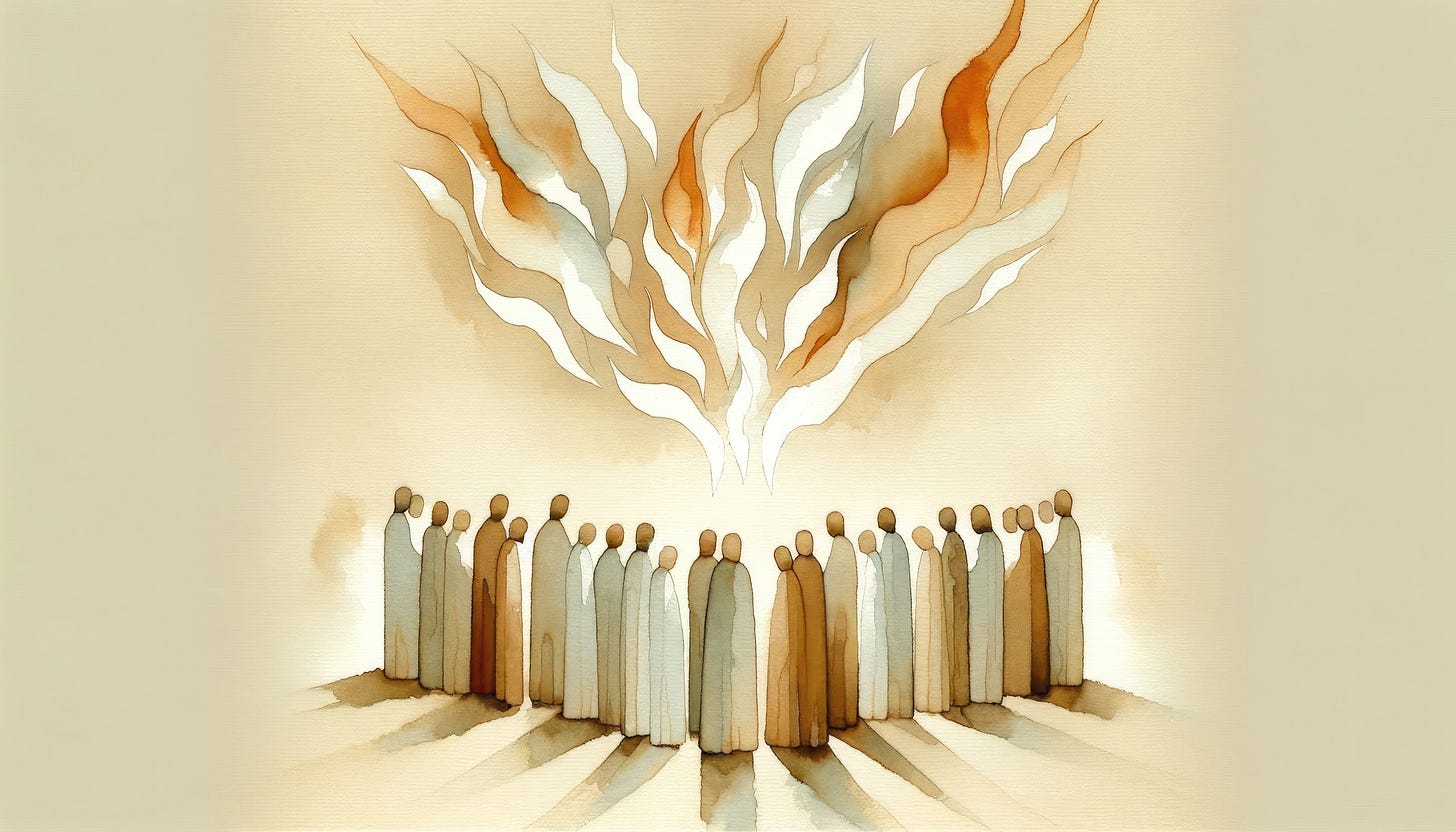Spaces for the Holy Spirit
Why it matters
It’s no secret that the Holy Spirit is the most overlooked, and consequently, least understood person of the Trinity. The Spirit is often referred to as the “third person” of the Trinity, after the Father and Son. This sometimes leaves the impression of a ranking of importance, the Spirit being the least important. This is an unfortunate characterization, and wrong, at least in the sense of the unfolding of the Trinitarian narrative with the Son being the third person to appear in a named way.
One of my professors stressed his view that the Spirit’s role was not to call attention to the Spirit’s own work, but to point to the work of the Father and Son. This might be true, but no less so than the role of the Son in pointing to the work of the Father and the Spirit. I was with a group this weekend whose doctrine of the Spirit historically denied contemporary gifts of the Spirit given their interpretation of 1 Cor 13: when the “perfect” comes, certain gifts are no longer in play, the perfect being the closing of the canon—the Bible doing away with the need for the Spirit’s gifts. This is a truly flawed interpretation, but one common among “cessationist” groups, and yet another way to deemphasize the Spirit. In my own tradition, not only were we cessationists, but some taught that the Spirit was only in the Bible, denying any personal indwelling of the Spirit or the Spirit’s activity in the world.
We could go on with bad doctrine concerning the Holy Spirit. Truth is, though, we don’t get much more clarity from the academics who write books on the Spirit. Jurgen Moltmann’s book, The Spirit of Life, takes a broad view. Wherever there is life, the Spirit of God is at work. Moltmann’s student, Michael Welker, takes a very different approach in God the Spirit. The Spirit’s work is public and specific. It’s not as mysterious as Moltmann’s view, but can be identified through distinct outcomes that are consistently attributed to the Spirit throughout the Bible. I tend to side with Welker, unless I’m reading Moltmann, or Pinnick, or Yong. These diverse, yet persuasive, accounts leave me in ambiguity which may be the point. Yet it also might be a reason the Spirit’s role is underemphasized by many.
I think talking about the Spirit and “space” might have some promise. It’s at least a concrete and practical approach. Along practical lines, I just want to make two points about the Spirit’s necessity, especially in the world of modern social imaginaries. My own personal experience is one of oscillating belief. I know what I believe as a credible account of the Christian faith, but I lose pieces of it here and there and from time to time when I consider the world in which I live. Belief is hard.
I am comforted often by Romans 8: “In hope we are saved. For who hopes in what is seen? But if we hope in what we do not see, we wait for it patiently. The Spirit helps us in our weakness, for we don’t even know how to pray. The Spirit intercedes for us with wordless groans.” Two things here. This passage coincides, I believe, with those texts that speak of the Spirit as “first fruits” and the pledge or downpayment given us to hold us until the fullness of time—until what we hope for is seen (2 Cor 1:22, 5:5). The presence of God’s Spirit holds me while my belief catches up.
Second, the Spirit joins in my groaning when I don’t know how to pray, which is often. In Romans 8, creation groans, and those of us who have the “first fruits” of the Spirit groan while we wait for our adoption, the redemption of our bodies, and the Spirit intercedes in all of this with “wordless groans.” Beneath the inarticulateness of my belief is the assurance of the Spirit who both enters and invites my groaning.
To diminish the importance of the Holy Spirit is to forego the opportunity of assurance beyond my ability to see evidence of what I believe. This is not simply fideism. It is not hope in the sense of mindless belief. Again from Rom 8, “God who searches the heart, knows what is the mind of the Spirit, for the Spirit intercedes for the saints according to the will of God.” Some of what we know comes through reason. These are the hardest things to hold on to. But there is knowing that comes though the experience of the Spirit, our pledge that the whole enterprise is real.




But how do we know when it is truly an Acts 15:28 moment, a work of the Spirit, and not just wishful thinking or worse, a collective panic attack?